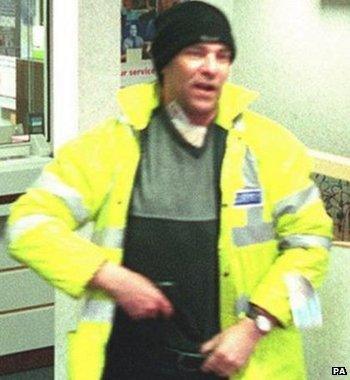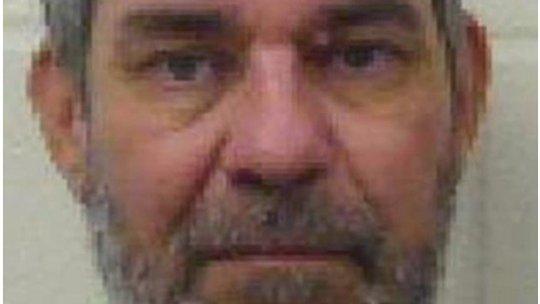What was a lifer doing in an open prison?
- Published

Ministers say there will be a "full review" of the decision to grant a convicted armed robber permission to leave an open prison on a day-release licence.
But what are the rules governing such decisions and why would a man serving a life sentence for a string of violent raids ever be considered a suitable candidate for an open prison?
Police are searching for Michael Wheatley, who was given 13 life terms at the Old Bailey in 2002, after he failed to return to HMP Standford Hill on the Isle of Sheppey in Kent.
Ministry of Justice figures show that on 31 December last year there were 1,242 inmates in open prisons serving either an indeterminate sentence for public protection or life imprisonment, given for offences including murder, rape and robbery.
But such prisoners should only be moved to an open prison - also known as category D jails - if the parole board finds they are not a danger to the public or other inmates, or likely to abscond.
The transfer is also a precursor to their eventual release from prison and inmates are often given release on temporary licence, external (ROTL), allowing them to leave the jail for a few hours or even overnight.
There has been some criticism of the decision to transfer Wheatley - given the nickname "Skull Cracker" for pistol-whipping his victims - to an open prison in the first place as he was on parole from a 27-year sentence for other robberies when convicted in 2002.
A dangerous prisoner sentenced to a fixed number of years can serve their full term in a closed prison.
Someone serving a life term, however, would often be transferred to an open prison ahead of their release - a long-standing Ministry of Justice rule.
They would first be been risk assessed by the independent Parole Board, external, made up of members of the judiciary and probation service, as well as psychologists, psychiatrists, and the public.
The single most important factor in any Parole Board decision is whether the offender poses a risk to the public. The Parole Board's role is not to rehabilitate offenders but to advise the justice secretary if a serious offender is fit to be released on licence.
In Wheatley's case, the judge sentencing him almost 12 years ago said he could be considered for parole after eight years.
The fact that four years on from his earliest release date he was in an open prison is an indication that it was thought he could then be trusted to adhere to the less restrictive rules there and perhaps be freed at some stage.
Tighter rules
Wheatley, 55, failed to return to prison after he was grated a resettlement day release licence. This enabled him to take part in community service projects or other activities such as training or education courses.
Other types of licence granted to prisoners in open prisons allow inmates to leave prison to attend funerals, get married, or to receive medical treatment; to spend time with their children if a single parent, or stay at the address they will be living at once released.
So why would a prisoner given an indication they were to be released even consider going on the run?
In Wheatley's case it is not known why he did not return to prison - and critics of day release say that it's an open invitation for a repeat offender to go on the run and making a mockery of the fact that they are supposedly locked up.
But prison reform campaigners say inmates can sometimes have legitimate reasons to return late, which can be as simple as missing a bus back. They say that day-release schemes help reduce reoffending by accelerating the offender's re-integration into society.
Justice Secretary Chris Grayling: "I'm asking serious questions internally"
But in March, the Ministry of Justice said day release from prison was to be scaled back following a series of serious crimes committed by offenders temporarily out of jail.
Tighter rules about who is eligible for the scheme were also planned. Prisoners will only be allowed out for a specific purpose, such as work experience, and day-release prisoners will also have to wear electronic tags, said ministers.
The government cases that prompted the change include that of Ian McLoughlin, who was convicted of murdering Graham Buck in the village of Little Gaddesden, Hertfordshire, last July, while on day release. Another incident, which led to an offender being convicted of attempted robbery, also prompted the change.
- Published6 May 2014

- Published5 May 2014

- Published5 May 2014
